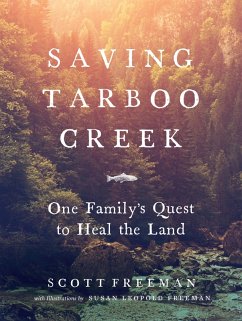Examine the most pressing environmental issues of our time through one family's detailed account of creek restoration. Equal parts heartfelt and enlightening, Saving Tarboo Creek explores how the Freeman family lived a more authentic, fulfilling, and natural life one sapling and one acre at a time.
Dieser Download kann aus rechtlichen Gründen nur mit Rechnungsadresse in A, B, BG, CY, CZ, D, DK, EW, E, FIN, F, GR, HR, H, IRL, I, LT, L, LR, M, NL, PL, P, R, S, SLO, SK ausgeliefert werden.


